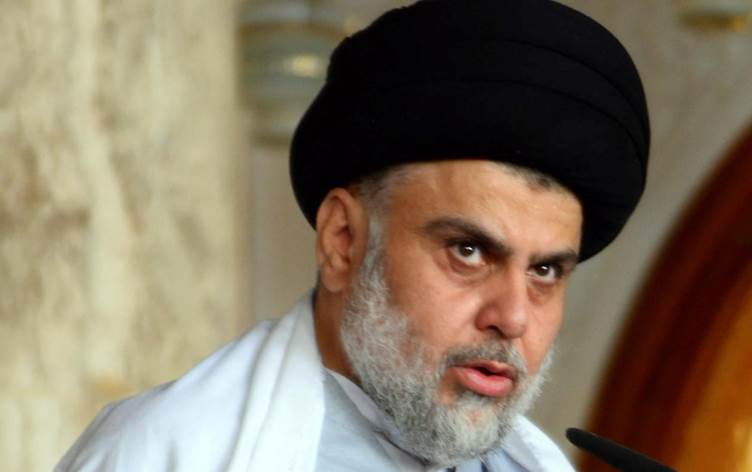Sadr calls on independent MPs to form government

ERBIL, Kurdistan Region – Shiite cleric Muqtada al-Sadr on Wednesday called on the Iraqi parliament's independent members to form the country's next government after rivaling Coordination Framework are seemingly failing to capitalize on Sadr's 40-day ultimatum to form a government excluding his alliance.
With the Iraqi government formation process in turmoil, Sadr in a statement asked the legislature's 43 independent members, to form a government "within a maximum period of 15 days".
The Sadrist Movement leader affirmed that "the larger coalition will vote on their government" should they successfully manage to complete the task.
Sadr is part of a tripartite alliance, named Save the Homeland Alliance with the Kurdistan Democratic Party (KDP) and the Sunni Sovereignty Alliance, and together they won over 150 parliamentary seats in the October elections.
His main rival is the Coordination Framework, a pro-Iran Shiite alliance that has repeatedly opposed his calls for a national majority government, instead vying for the more familiar government based on political consensus.
The cleric also reiterated his request to Coordination Framework members whom he thinks "well of" to enter an alliance with the Sadrist bloc in hopes that they will "give priority to national interests" and stray from "forced political obstruction".
As part of a greater initiative, the Coordination Framework on Wednesday asked the Kurdish political parties to unify their positions on a candidate for the post of Iraq's next president, with the KDP and the Coordination Framework-aligned Patriotic Union of Kurdistan (PUK) supporting different presidential candidates.
The KDP has fielded Reber Ahmed as a challenger to incumbent Barham Salih, PUK's pick for the post.
On March 31, Sadr announced that he would cease government formation efforts in a 40-day window given to the "obstructing third," referring to the Coordination Framework, to rally other political parties and form a government, a deadline that is expected to expire next week.
Boycotts over disagreements in the government formation process have caused Iraq's different alliances to fail in electing a president on three occasions, almost seven months after the country held early elections.
Iraq held snap elections on October 10. The vote was called in response to mass protests in the country beginning in October 2019, caused by widespread dissatisfaction with Iraq's politicians and endemic corruption in the country.
With the Iraqi government formation process in turmoil, Sadr in a statement asked the legislature's 43 independent members, to form a government "within a maximum period of 15 days".
The Sadrist Movement leader affirmed that "the larger coalition will vote on their government" should they successfully manage to complete the task.
Sadr is part of a tripartite alliance, named Save the Homeland Alliance with the Kurdistan Democratic Party (KDP) and the Sunni Sovereignty Alliance, and together they won over 150 parliamentary seats in the October elections.
His main rival is the Coordination Framework, a pro-Iran Shiite alliance that has repeatedly opposed his calls for a national majority government, instead vying for the more familiar government based on political consensus.
The cleric also reiterated his request to Coordination Framework members whom he thinks "well of" to enter an alliance with the Sadrist bloc in hopes that they will "give priority to national interests" and stray from "forced political obstruction".
As part of a greater initiative, the Coordination Framework on Wednesday asked the Kurdish political parties to unify their positions on a candidate for the post of Iraq's next president, with the KDP and the Coordination Framework-aligned Patriotic Union of Kurdistan (PUK) supporting different presidential candidates.
The KDP has fielded Reber Ahmed as a challenger to incumbent Barham Salih, PUK's pick for the post.
On March 31, Sadr announced that he would cease government formation efforts in a 40-day window given to the "obstructing third," referring to the Coordination Framework, to rally other political parties and form a government, a deadline that is expected to expire next week.
Boycotts over disagreements in the government formation process have caused Iraq's different alliances to fail in electing a president on three occasions, almost seven months after the country held early elections.
Iraq held snap elections on October 10. The vote was called in response to mass protests in the country beginning in October 2019, caused by widespread dissatisfaction with Iraq's politicians and endemic corruption in the country.
